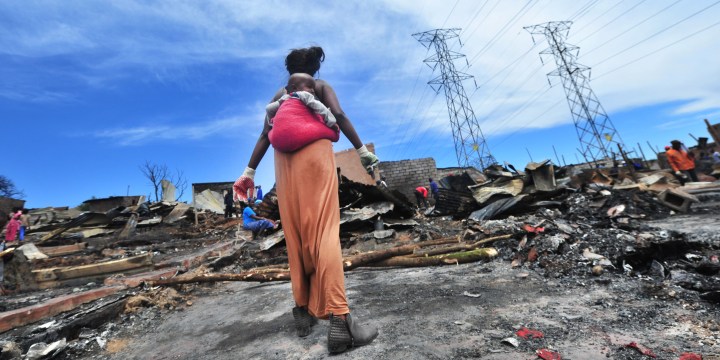Report
Equal rights continue to be trampled on, says SAHRC report

The South African Human Rights Commission has reported the right to equality as the most violated human right since it released its first Trends Analysis Report in 2013. And yet, non-compliance with the commission’s remedial sanctions has been identified as another trend that poses a risk to a culture of respect for human rights.
Non-compliance with the South African Human Rights Commission’s recommendations, particularly by organs of state, continues to undermine the independence and effectiveness of the commission, says the SAHRC Trends Analysis Report.
The commission received more than 5,000 complaints of human rights violations between 2016 and 2017, with the right to equality reported as the most violated, at 705 complaints.
Commission senior legal officer Alexandra Fitzgerald says race-based discrimination against black South Africans forms a huge part of violations of the right to equality, with an increase in the use of the “K-word” and derogatory words such as “monkey” and “baboon”.
“Social media increases the visibility of certain behaviour and conduct we might not have been aware of because it (previously) happened in a private setting,” said Fitzgerald.
Furthermore, the right of access to basic services is the second-most violated of human rights, says Fitzgerald. There is still inadequate access to basic services, often left unresolved for many years by government departments with poor skills or capacity to resolve them.
The rights to healthcare, food, water and social security have had a significant increase, with 631 complaints compared with the 428 registered in the 2015/2016 financial year.
The rights for the arrested, detainees and accused persons with 443 complaints, labour relations rights at 426 and just administrative action at 407 complete the most frequent human rights violations reported in the past five years.
But an ongoing trend of ignoring the commission’s recommendations “compromises the prospect of attaining a culture of respect for human rights in society”, says the report.
The report also records a rise in the number of cases resolved through alternative dispute resolution as an alternative to legislation. Over the five years under review, there were 211 — an average of 42 cases a year, according to the report. Of these, 71 — or 34% — were race-based complaints.
The report notes that “ alternative dispute resolution mechanisms have a high rate of successful resolution” and “provides parties with a platform to engage and achieve consensus around outcomes of their dispute resolution without resorting to costly litigation.”
According to CEO of the SARH advocate Tseliso Thipanyane, alternative dispute resolutions currently make up 38% of all cases. In Australia, these processes make up 68%, a trend that the SARH would like to emulate.
SAHRC spokesperson Gail Smith said the report hinted at the complexity of human rights work in South Africa. The commission needed more powers in order to make sure its recommendations were applied. When its credibility was undermined by non-compliance, mostly by government departments, it impacted on people’s willingness to lodge a complaint with the commission.
According to SAHRC chairperson Bongani Majola, the commission needed resources to enforce compliance, and also to consider litigation.
Majola noted that according to the UN Paris Principles on National Human Rights Institutions, the government is required to make sufficient financial resources available for the institution to do its work properly.
According to the report, the landmark judgment of the Constitutional Court — that the remedial action recommended by the Public Protector is binding unless set aside by a court of law, is an example of the type of powers that the commission seeks, although Section 184 (b) of the South African Human Rights Commission Act gives the commission powers to take steps to achieve adequate redress through litigation.
The commission is presently involved in the Edward Zuma case, where the son of President Jacob Zuma wrote an open letter to Public Enterprises Minister Pravin Gordhan and Tourism Minister Derek Hanekom, using derogatory names.
And although a court ordered Zuma to issue an apology, this has not occurred.
Furthermore, Section 18 of the Constitution places a duty on the public to respond to commission findings.
“When we find it is binding and must be implemented, we can go to court to enforce those findings,” said Thipanyane.
“It will help South Africa if we can work together to solve problems, as some government officials do co-operate while others do not,” said Smith.
The commission is often forced to use its subpoena power when government officials do not co-operate as required by constitutional and human rights legislation, said Smith.
“What I would like to make it clear is that our funding concerns have not impeded our ability to hold the government to account when necessary,” said Thipanyane. DM


















 Become an Insider
Become an Insider